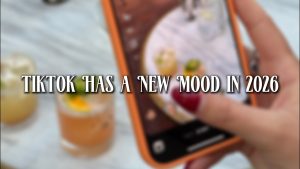As we approach 2025, the fashion ecommerce landscape is rapidly evolving, driven by technological advancements and changing consumer behaviours. Fashion brands must adapt their marketing strategies to not only keep pace with market trends but also to optimise their online stores for enhanced customer experiences. This article delves into the essential fashion ecommerce marketing strategies that retailers should adopt to thrive in an increasingly competitive market.
Understanding the Fashion Ecommerce Landscape
Overview of the Fashion Ecommerce Market
The fashion ecommerce market is on a remarkable trajectory, with projections indicating a compound annual growth rate (CAGR) of 14.2% from 2017 to 2025. By 2024, the market is expected to reach a staggering valuation of $1 trillion, highlighting the significant expansion of online shopping within the fashion industry. Key segments such as clothing, footwear, and accessories are driving this growth, with sales figures in the U.S. anticipated to hit $224.0 billion by 2024. Retailers must recognise the importance of optimising their ecommerce websites and employing effective digital marketing strategies to capitalise on this burgeoning market.
Key Players in the Fashion Ecommerce Industry
In the competitive realm of fashion ecommerce, several key players have emerged, shaping the market landscape. Amazon has firmly established itself as the leading apparel retailer in the U.S., with estimated sales exceeding $56 billion in clothing, footwear, and accessories in 2023. Meanwhile, European giant Zalando reported an impressive revenue of €10.1 billion, operating across 25 countries. These fashion ecommerce brands exemplify the importance of leveraging innovative marketing campaigns and influencer marketing to enhance their brand visibility and conversion rates in an ever-evolving marketplace.
Trends Shaping the Fashion Retail Sector
The fashion retail sector is witnessing significant trends that are influencing consumer behaviour and shaping marketing efforts. Personalisation and omnichannel sales are becoming pivotal, as shoppers seek seamless experiences across various platforms. Social commerce is thriving, with brands increasingly utilising influencer marketing to engage their audience effectively. Moreover, the secondhand apparel market in North America is projected to reach $77 billion by 2028, outpacing the overall apparel market and underscoring a shift towards sustainable practices within the fashion ecommerce industry. Adapting to these fashion ecommerce trends will be essential for retailers aiming to enhance their customer experience and drive sales.
Effective Digital Marketing Strategies for Fashion Brands
Leveraging Email Marketing for Conversion
Email marketing remains a cornerstone of effective digital marketing strategies for fashion brands seeking to enhance their conversion rates. By crafting personalised emails, retailers can significantly improve customer relationships and engagement. Implementing strategies such as thank you letters, reminders for abandoned carts, and updates on wish list products can make shoppers feel valued. Moreover, syncing email marketing campaigns with customer buying behaviour and preferences allows brands to deliver tailored content that resonates with their audience. This approach not only drives traffic back to the ecommerce website but also nurtures long-term loyalty, ultimately optimising the overall shopping experience.
Utilising Social Media and Influencer Marketing
In today’s fashion ecommerce landscape, influencer marketing has become an integral part of brand growth and visibility. Fashion retailers are increasingly collaborating with influencers who align with their brand values and have a follower base that matches their target audience. This strategic partnership amplifies product awareness across social media platforms, driving traffic to their ecommerce sites. Influencers create authentic content that showcases products in real-life scenarios, enhancing the customer experience and encouraging conversions. By leveraging social commerce and engaging influencer marketing campaigns, fashion ecommerce brands can effectively increase their reach and establish a stronger presence in the competitive fashion industry.
Implementing SMS Marketing Campaigns
SMS marketing is emerging as a powerful tool within the digital marketing arsenal of fashion retailers, offering a direct line to consumers that can significantly enhance engagement and conversions. By sending timely promotions, reminders, and personalised messages, brands can create a sense of urgency and exclusivity that resonates with shoppers. Integrating SMS with other marketing channels not only streamlines communication but also enriches the overall customer experience. This direct approach allows fashion ecommerce businesses to keep their audience informed about new arrivals or special offers, ultimately driving traffic to their online store and optimising the checkout process for a seamless shopping experience.
Conversion Rate Optimisation in Fashion Ecommerce Marketing
Strategies to Improve Ecommerce Conversion Rates
To effectively enhance conversion rates in the fashion ecommerce sector, brands must implement innovative strategies that resonate with shoppers. One effective approach is the use of overlays and pop-ups, which can significantly boost customer engagement by promoting sales and offering personalised product recommendations. Additionally, integrating augmented reality (AR) technology for virtual try-ons allows customers to visualise how products would look on them, thereby increasing their confidence in purchases and reducing return rates. These enhancements not only improve the shopping experience but also contribute to higher conversion rates, making them essential practices for any fashion retailer aiming to succeed in the competitive ecommerce landscape.
Analysing Customer Behaviour for Better Conversion
Understanding customer behaviour is crucial for fashion ecommerce brands looking to optimise their marketing strategies. By leveraging data analytics, brands can gain invaluable insights into customer preferences and behaviours, allowing them to tailor their marketing efforts effectively. Analysing browsing history and purchase patterns enables retailers to optimise product recommendations, ensuring that customers are presented with options that align with their interests. This personalised approach enhances the overall shopping experience, encouraging repeat visits and fostering brand loyalty. In a rapidly evolving ecommerce market, brands that prioritise customer behaviour analysis will be better positioned to increase conversions and drive sustained growth.
Importance of Ecommerce Website Design in Fashion
The design of an ecommerce website plays a pivotal role in shaping the customer experience and influencing conversion rates in the fashion industry. An effective website design should provide a seamless shopping experience, characterised by easy navigation and visually appealing layouts that captivate visitors. High-quality visuals, including product videos and images, are essential for conveying product value and enhancing user engagement. By ensuring that ecommerce sites are not only aesthetically pleasing but also functionally efficient, fashion retailers can significantly improve their chances of converting visitors into loyal customers, ultimately driving sales in the competitive ecommerce fashion landscape.
Emerging Fashion Ecommerce Marketing Trends for 2025
Impact of Sustainability on Fashion Ecommerce
The impact of sustainability on fashion ecommerce is becoming increasingly pronounced as consumers demand eco-friendly products and ethical sourcing practices. Brands are responding to this shift by integrating sustainable fashion practices into their ecommerce strategies, focusing on transparency in supply chains. This heightened awareness encourages shoppers to make informed purchasing decisions, favoring brands that prioritise environmental responsibility. As a result, the ecommerce market is witnessing a surge in demand for sustainable apparel and accessories, compelling retailers to adapt their marketing efforts accordingly. By championing sustainability, fashion brands can not only enhance their reputation but also foster a loyal customer base that values eco-conscious choices.


Technological Innovations in Fashion Retail
Technological innovations are revolutionising the fashion retail landscape, with advancements such as artificial intelligence (AI) and augmented reality (AR) playing pivotal roles. These technologies enhance personalisation within the fashion ecommerce experience, allowing brands to tailor product recommendations and marketing communications to individual shopper preferences. As consumers increasingly expect seamless interactions, fashion retailers are adopting these innovative solutions to improve customer engagement and drive conversions. Furthermore, integrating AR into ecommerce sites enables virtual try-ons, allowing customers to visualise products before making purchases. Embracing these technological innovations is essential for fashion ecommerce brands aiming to remain competitive in a rapidly evolving market.
Personalisation and Customer Experience in Ecommerce
Personalisation has emerged as a key strategy in fashion ecommerce, allowing brands to create tailored shopping experiences that resonate with individual preferences. By leveraging customer data, fashion retailers can implement marketing strategies that include personalised product recommendations and targeted content marketing campaigns. This approach not only enhances the shopping experience but also fosters stronger connections between brands and their consumers. As shoppers increasingly seek unique and relevant interactions, optimising the ecommerce website for personalisation becomes paramount. Fashion brands that effectively utilise data-driven insights to curate their marketing efforts will likely see improvements in both conversion rates and overall customer satisfaction.
Choosing the Right Fashion Digital Marketing Agency
Criteria for Selecting a Fashion Ecommerce Marketing Agency
When selecting a fashion digital marketing agency, it’s crucial to assess their expertise in crafting marketing strategies specifically tailored to the fashion industry. A suitable agency should demonstrate proficiency in utilising various digital marketing channels, offering data-driven insights that can optimise campaigns for maximum effectiveness. Consider their track record in implementing successful marketing campaigns that resonate with target audiences and drive engagement. Additionally, ensure they employ best practices in ecommerce marketing to enhance brand visibility and conversion rates. By choosing the right agency, fashion brands can leverage specialised knowledge to navigate the complexities of the evolving ecommerce landscape effectively.
Benefits of Partnering with a Specialised Fashion Ecommerce Marketing Agency
Partnering with a specialised fashion marketing agency can yield significant benefits for ecommerce brands. Access to industry expertise enables brands to stay ahead of emerging fashion trends and evolving consumer behaviours. These agencies often bring innovative marketing strategies that can amplify brand presence and drive effective execution of campaigns. Moreover, they offer valuable insights into market dynamics, allowing retailers to optimise their ecommerce platforms and enhance the overall shopping experience. By leveraging the resources and knowledge of a specialised agency, fashion retailers can maximise their marketing efforts, leading to improved conversion rates and a stronger competitive position in the ecommerce market.
Case Studies of Successful Fashion Ecommerce Marketing Campaigns
Successful fashion marketing campaigns often combine personalised marketing approaches, influencer partnerships, and data analytics to drive engagement and sales effectively. For instance, brands that utilise influencer marketing not only enhance their visibility but also create authentic connections with their audience, encouraging conversions. Additionally, campaigns that leverage data analytics allow retailers to tailor their messaging based on consumer behaviour, leading to higher conversion rates and increased customer loyalty. By examining case studies of these successful strategies, fashion ecommerce brands can glean insights into effective practices that resonate with shoppers, ultimately optimising their marketing campaigns for greater impact and success.




























